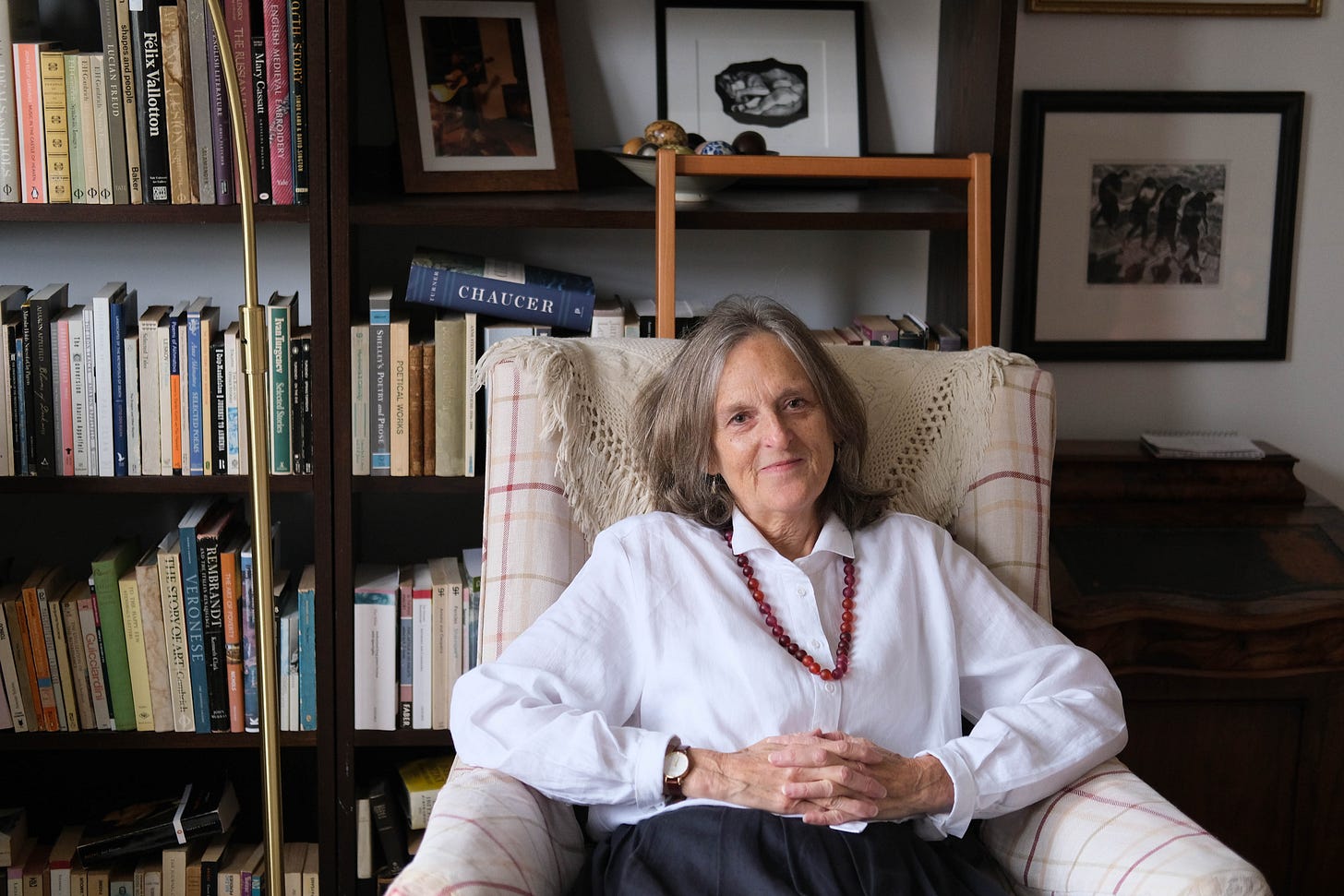I learned a new word from Tessa Hadley’s exquisite novella ‘The Party’: concupiscence. It means ‘strong sexual desire’ but not, it would seem, in a healthy way, more like something that ought to be resisted. A dictionary example is ‘St Anthony’s battle with concupiscence’. Synonyms include: lechery, lewdness, raunchiness, wantonness, but also sexual longing and, most coloquially, the hots.
The word comes up in a self-consciously erudite and also drunken conversation between Evelyn, an artsy student of French literature, and Donald, a very nice and caring young man who certainly has the hots for her, while she seems to be saving herself for someone who is neither nice nor particularly well-intentioned. I forgot to ask Tessa Hadley: is it a truth universally acknowledged that bad men are sexually more attractive? Is that where the excitingly immoral root of concupiscence comes in?
The two young people are chatting outside a seedy pub in 1950s Bristol, on a cold, wet winter night. There is a jazzy party of the title going on inside, which Evelyn decided to attend with her older, admirably sophisticated and self-assured sister Moira. The novella unveils a disturbing consequence of this party, in a classic Hadley manner: gentle yet relentless, a hard truth without embellishment yet perfectly beautiful. The night of the party highlights the sisters’ complicated home life with their unhappily married parents, and a seductive visit to a strange mansion inhabited by emotionally wasted posh young people who could be extras in the narrative landscape of The Great Gatsby.
Evelyn may look up to her older sister for almost everything, but she is actually the cool sister, in my opinion. Not only is she a bookish intellectual who reads French novels, she also looks the part: ‘…beret tilted to one side, silk scarf fastened insouciantly around her throat. Insouciante, she murmured with a French accent, gazing adoringly at herself, finishing off her outfit with a couple of books under her arm.’
But when she actually reads those books, they are no fashion accessory. She immerses herself in their world curled up in an armchair, wearing her scruffiest home clothes. The protagonist of ‘The Party’ may be in love with French fiction, yet she is a fully drawn fictional character herself. This is Tessa Hadley’s literary super power: to make her ‘ordinary’ characters shine from within, illuminated by the reality they inhabit and dream of.
The reality of this novella is post World War II Bristol. The war is in the not too recent past, but there is a new military conflict on the political horizon which continues to swallow up young men. The two sisters know and meet men who have been in the war. They do admire their bravery but are often repulsed by how war affects men’s psyche. Evelyn again: ‘I hate war. I hate the expression that comes on men’s faces when they talk about war…. As if they’re sharing a dirty joke together, flicking it across in front of your eyes to tease you, but too fast for you to know what the joke is. Concupiscence is in it somewhere.’
A conversation with Tessa Hadley is as much of a treat as reading her. She has the unassuming wisdom of someone who never stops reflecting on even the most transient idea or observation, with a wonderfully questioning mind. You sense her endless curiosity about life in general, and her literary creations in particular. It was all the more interesting to hear how, for several decades, she did not know her own voice as a writer.
We also discovered we both love Lucia Berlin’s short story collection ‘A Manual for Cleaning Women’, a mostly posthumous success for an author of supreme talent. Tessa Hadley writes with a similar urgency to unpeel all the layers of what we see, to uncover who we are.
THE PARTY is published by Jonathan Cape.
Photo of Tessa Hadley © Sophie Davidson
The interview with Tessa Hadley was recorded at Crazy Coqs Cabaret & Bar, Brasserie Zedel, London. The evocative art deco atmosphere was a perfect fit for this conversation. Thank you to Brasserie Zedel for their kind support of this podcast.
Please follow SHOP TALK WITH WRITERS on Spotify, on Apple Podcasts, and find us on instagram @shoptalkwriters.






Can't think why I have never read a Tessa Hadley before . Loved the philosophical comments on what could have been a disastrous sexual encounter . C'est la vie and then a shared currant bun The podcast was brilliant
Two of my favourite writers, Tessa Hadley and Lucia Berlin. I kept A Manual for Cleaning Woman near my side for two years. It's a genius collection, and one I will never tire of. I am reading Bad Dreams by Tessa Hadley right now - also excellent.